14 Best Books of 2014

At Desiring God I cherish being surrounded by co-laborors and online friends who treasure great books, and who eagerly celebrate and share the most noteworthy titles as they come along.
In 2014, delicious non-fiction Christian titles ran off presses like hot donuts rolling off the assembly line at Krispy Kreme. As I narrowed my list of finalists down (to about five dozen!), it dawned on me that I should begin with thanks to the wise and dedicated writers, editors, and publishers who brought us such an excellent offering. Thank you!
The bibliophilic bounty makes choosing my top list difficult (in a fun way). I pulled it off by using my scientifically subjective algorithm of intuition about what books I think (1) serve the widest crowd, (2) offer the most unique insights, (3) and seem to promise the most enduring impact in the years ahead.
Here’s my top 14 (with 14 runners-up).
Top 14 Books of 2014
1. Tim Keller, Prayer: Experiencing Awe and Intimacy with God (Dutton). Unique, fresh, and deeply rooted in history — this book is vintage Keller in his most carefully researched and most Reformed self. In part, it’s a celebration of the rich tradition of prayer enjoyed by our forefathers. But its greatest strength is the use of Scripture to frame the prayer life (a bulk of the book is about how Scripture is essential to it). When I finished this book, it instantly topped this year’s book list. Reformed to the core, practical, comprehensive, God-centered, Christ-focused, and joy-saturated — the book is rich on many levels. (And be sure to read the footnotes, where you’ll discover a second book of bonus content!)
2. ESV Reader’s Bible (Crossway). The biggest book buzz this year belonged to the Kickstarter Bibliotheca Bible, an elegant, handcrafted, multivolume edition of the Bible you want to sit and hold and read and enjoy. Crossway had already planned the release of a Bible that pretty much matched it feature-for-feature, with a superior translation, and packaged in a more affordable and convenient one-volume edition. Remove the section headings and chapter and verse numbers, and you’re left with the bare text of Scripture, ready to be read like any book. I expected that. I was unprepared for how this Bible would change my reading habits, and how I would fall in love with reading the sweeping narratives of Scripture, the Prophets, and the Wisdom literature. Reading Proverbs, for example, I was struck by how individual bits of wisdom are meant to fit into a cohesive plan of lifelong God-fearing obedience. Simple and clean — this Bible displays a winning recipe for innovation.
3. Dane Ortlund, Edwards on the Christian Life: Alive to the Beauty of God (Crossway). This book nails the core of what we celebrate at Desiring God. Delighting in God’s beauty is the high-octane fuel for the Christian life. And this God-centered delight frames all the other gifts he has given us to enjoy. As Dane writes, “True joy derives not from God and job, family, sex, friends, food, rest, driving, buying a home, reading a book, drinking coffee — but from God in these things. . . . Every taste of beauty in this world, from the roar of waterfalls to the chatter of birds to the richness of true friendship to the ecstasy of sexual experience, is a drop from the ocean of divine beauty. Every pleasure is an arrow pointing back to him. Joy is from, and only finally in, God” (79). As you can see, Dane is a realist, and in this book he highlights Edwards’s greatest contributions to the church, and critiques his failures, but mostly he just helps average Christians come alive again to God’s beauty.
4. Stephen Westerholm, Justification Reconsidered: Rethinking A Pauline Theme (Eerdmans). This is a magnificently short, clear, and profound book on the precious doctrine of justification. Not only is it deliciously good theology, it’s a nearly perfect model of how serious academic theology can be done (and should be done!) in rich prose for the joy and health of the church . . . and in 100 pages.
5. John Piper, Seeing Beauty and Saying Beautifully: The Power of Poetic Effort in the Work of George Herbert, George Whitefield, and C. S. Lewis (Crossway). If you are a preacher, public speaker, writer, poet, or songwriter, and you find yourself called by God to creatively engage culture with the truth of God, this may be the most important book of the year for you. What we say is critically important; but how we say it needs our desperate attention as well. In this book John Piper not only serves as a model of creative writing but also a historian of three men who mastered the feat in history past.
6. Kevin Vanhoozer, Faith Speaking Understanding: Performing the Drama of Doctrine (WJK). Many skilled writers today help us do church right. But no serious theologian gives a more cohesive and compelling vision for the local church than Vanhoozer. A reader has “gotten” Vanhoozer’s theology when he or she feels an insatiable urge to gather again with the people of God. While most of what he’s written has been aimed at academic audiences, this is his first attempt to bring the cookies down, to serve up his vision of theology in an appetizing way for all the people of God. Looong overdue, but fresh and delicious.
7. Drew Dyck, Yawning at Tigers: You Can’t Tame God, So Stop Trying (Thomas Nelson). This is a welcome and much-needed reminder of how the hard things of God in the Bible are meant to stir our love for him and mission with him. It’s time to stop apologizing for God, and time to humbly worship him as he has revealed himself in the Bible. God is not a kitten, he’s a tiger. He’s good, but he’s not tame. If we choose to live in denial of God as he revealed himself, our worship will weaken, our standards of purity will diminish, our mission will skid to a halt, our message will be hollowed out, and our part in God’s global work will become more and more trivial. All that’s at stake.
8. C. S. Lewis and David C. Downing, editor, The Pilgrim’s Regress: The Wade Annotated Edition (Eerdmans). Most annotated books leave me feeling pretty confused and stupid, but this book edited by Downing makes me wonder if most annotated classics are just lazily done and fail to address the many questions that will inevitably arise in the reader’s mind. Downing is different. He is a master at reading my mind and predicting when and where I’ll stumble on terms and phrases in Lewis’s notoriously difficult allegoric autobiography. Not only do I applaud Downing’s wonderful offering, I also make a public plea: Please tackle Till We Have Faces next!
9. Karen Swallow Prior, Fierce Convictions: The Extraordinary Life of Hannah More — Poet, Reformer, Abolitionist (Thomas Nelson). Not much here to add beyond my endorsement: “When Christ shed his blood for women he forever exalted them to their true and undeniable dignity, Hannah More has said. Blood-bought dignity was the bedrock for all her fierce convictions. She cultivated her intellect and imagination, and helped other women do the same, knowing sharp female minds would magnify Christ-honoring femininity and strengthen marriages, homes, and churches. Abandoned at the altar by her fiancé and never married, More poured out her life to educate women, care for the poor, pen bestselling literature, and help abolish slavery in Britain. She embraced God’s script for her life with tireless zeal. In the pages of this vibrant biography, Karen Swallow Prior paints a living picture of Hannah More: a modest and imaginative woman with the courage to cultivate biblical femininity and the wisdom to avoid the snares of early feminism. Her story must be retold in every generation. Ours is now covered.”
10. Christopher Ash, Job: The Wisdom of the Cross (Crossway). For my money this was easily the best commentary of the year. Typical of the Preaching the Word series, Ash is given a lot of freedom to bypass technicalities and to concentrate his attention on the theological interpretation of each passage, keeping his focus honed on the storyline momentum as the book of Job unfolds. All of this makes for a rare commentary you can sit down and read from cover to cover, and all of it written in light of the perfect work of Jesus Christ. This commentary is a spectacular achievement!
11. Michael Reeves, Christ Our Life (Paternoster, UK), or, Rejoicing in Christ (IVP, US). I read everything by Reeves and this book proves again why. This book is loaded with Tweetable statements, pithy, wise, and mature thoughts that will offer you a lifetime of meditation, like this one: “Nothing is more holy than a heartfelt delight in Christ.” Just think on that for a while. The book was first released in the UK this year, and IVP plans to release it in the States in March under the new title Rejoicing in Christ. If Charles Spurgeon was right — “There is no joy in this world like union with Christ. The more we can feel it, the happier we are.” — then prepare yourself to delight. Pre-order it, read it, and feast on the glories of Christ.
12. Hannah Anderson, Made for More: An Invitation to Live in God’s Image (Moody). We complementarians can sometimes over-emphasize what makes men and women different at the expense of celebrating our commonalities as fellow heirs of the grace of God and fellow image bearers of him in this world. This book is a good correction. Hannah has proven herself to be a sharp thinker and a genuinely skilled prose stylist, and I hope to improve as a writer by watching how she does it. While this book may not quite go far enough at points, and it may go a little too far at others, for now let me simply say, Hannah has delivered a provocative book to help complementarians steer clear of a gulch on the right.
13. Thomas Kidd, George Whitefield: America’s Spiritual Founding Father (Yale). What George Marsden did for Jonathan Edwards, Thomas Kidd has done for George Whitefield. The difference is that all the excitement of Whitefield’s ministry is packed into 263 pages! As Kidd sets out to prove: “George Whitefield was the key figure in the first generation of Anglo-American evangelical Christianity. Whitefield and legions of other evangelical pastors and laypeople helped establish a new interdenominational religious movement in the eighteenth century, one committed to the gospel of conversion, the new birth, the work of the Holy Spirit, and the preaching of revival across Europe and America. Until now, we have not had a scholarly biography of Whitefield that places him fully in the dynamic, fractious milieu of the early evangelical movement.” Kidd has set a new benchmark in Whitefield studies.
14. Daniel Montgomery and Timothy Paul Jones, PROOF: Finding Freedom through the Intoxicating Joy of Irresistible Grace (Zondervan). Sharp and witty, this overview of the heart of Calvinist soteriology is not only solid orthodoxy, it’s also a model for how to communicate ancient theology in a fresh style. If you’re looking for a new book to help you magnify God for his sovereign grace, or to help explain it to your friends, this is a gem worth considering.
Top 14 Runner-Up Books of 2014
So many other books deserve mention for all sorts of reasons, so I’ll add 14 more.
15. Zack Eswine, Recovering Eden: The Gospel According to Ecclesiastes (P&R)
16. Ray Ortlund, The Gospel: How the Church Portrays the Beauty of Christ (Crossway)
17. Carolyn McCulley and Nora Shank, The Measure of Success: Uncovering the Biblical Perspective on Women, Work, and the Home (B&H)
18. Trillia Newbell, United: Captured by God’s Vision for Diversity (Moody)
19. Gloria Furman, Treasuring Christ When Your Hands Are Full: Gospel Meditations for Busy Moms (Crossway)
20. John Freeman, Hide or Seek: When Men Get Real with God About Sex (New Growth)
21. Nabeel Qureshi, Seeking Allah, Finding Jesus: A Devout Muslim Encounters Christianity (Zondervan)
22. Donald Macleod, Christ Crucified: Understanding the Atonement (IVP)
23. Paul David Tripp, New Morning Mercies: A Daily Gospel Devotional (Crossway)
24. Vern Poythress, Chance and the Sovereignty of God: A God-Centered Approach to Probability and Random Events (Crossway)
25. Ian and Larissa Murphy, Eight Twenty Eight: When Love Didn’t Give Up (B&H)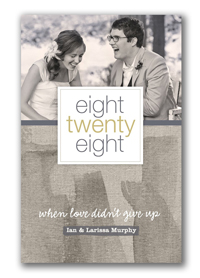
26. Jen Wilkin, Women of the Word: How to Study the Bible with Both Our Hearts and Our Minds (Crossway)
27. Mark Seifrid, The Second Letter to the Corinthians (Eerdmans)
28. David Platt and Tony Merida, Exalting Jesus in Galatians (Holman)
Previous Book of the Year Winners
2013: Thomas Schreiner, The King in His Beauty: A Biblical Theology of the Old and New Testaments (Baker Academic)
2012: Steve DeWitt, Eyes Wide Open: Enjoying God in Everything (Credo)
2011: G. K. Beale, A New Testament Biblical Theology: The Unfolding of the Old Testament in the New (Baker Academic)
2010: D. A. Carson, Scandalous: The Cross and Resurrection of Jesus (Crossway) and D. A. Carson, The God Who Is There: Finding Your Place in God’s Story (Baker)
2009: Bruce Gordon, Calvin (Yale)
2008: ESV Study Bible (Crossway) and Herman Bavinck, Reformed Dogmatics (Baker Academic)
2007: Bruce Waltke, An Old Testament Theology: An Exegetical, Canonical, and Thematic Approach (Zondervan)
2006: Joel Beeke and Randall Pederson, Meet the Puritans: With a Guide to Modern Reprints (Reformation Heritage)


 1. Tim Keller,
1. Tim Keller,  2.
2. 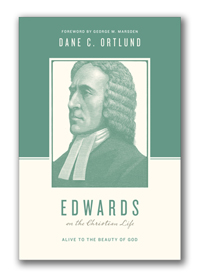 3. Dane Ortlund,
3. Dane Ortlund, 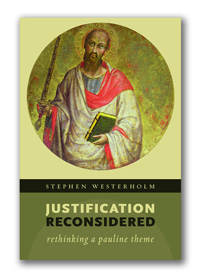 4. Stephen Westerholm,
4. Stephen Westerholm, 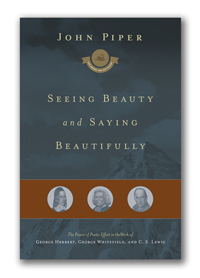 5. John Piper,
5. John Piper,  6. Kevin Vanhoozer,
6. Kevin Vanhoozer, 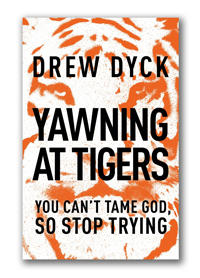 7. Drew Dyck,
7. Drew Dyck,  8. C. S. Lewis and David C. Downing, editor,
8. C. S. Lewis and David C. Downing, editor, 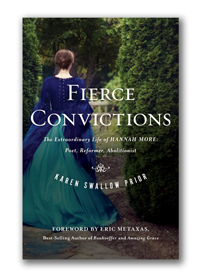 9. Karen Swallow Prior,
9. Karen Swallow Prior,  10. Christopher Ash,
10. Christopher Ash, 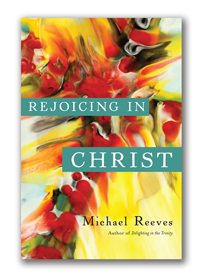 11. Michael Reeves,
11. Michael Reeves, 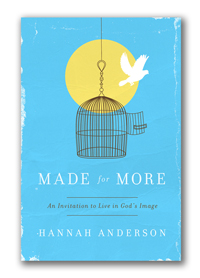 12. Hannah Anderson,
12. Hannah Anderson, 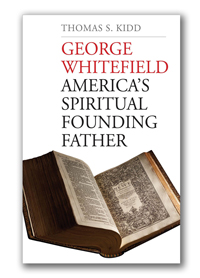 13. Thomas Kidd,
13. Thomas Kidd, 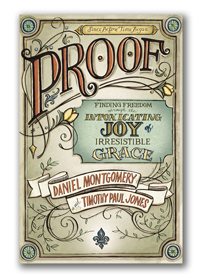 14. Daniel Montgomery and Timothy Paul Jones,
14. Daniel Montgomery and Timothy Paul Jones, 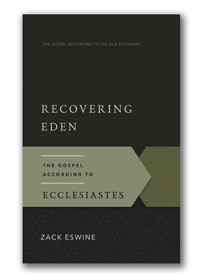 15. Zack Eswine,
15. Zack Eswine,  23. Paul David Tripp,
23. Paul David Tripp,  2013: Thomas Schreiner,
2013: Thomas Schreiner, 

